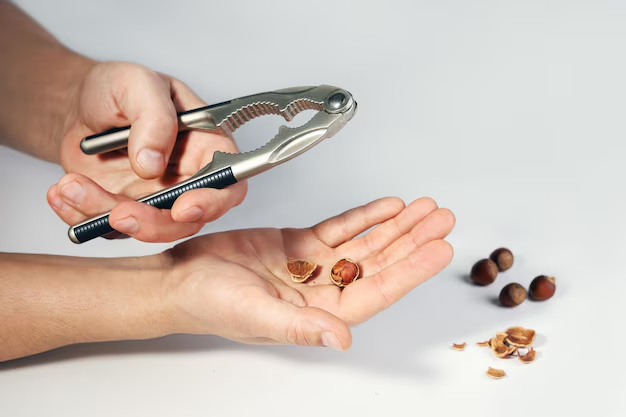Discovering the Nutritional Benefits of Peanuts for Diabetics: A Complete Guide
When it comes to managing diabetes, understanding how different foods impact blood sugar levels is crucial. Since peanuts are a popular snack option and widely used in various culinary creations, many who manage diabetes might wonder, Are peanuts good for diabetics? In this comprehensive guide, we’ll explore how peanuts fit into a diabetic diet from multiple angles and offer practical insights to help you make informed dietary choices.
🌟 The Nutritional Profile of Peanuts
Peanuts, though often grouped with nuts, are technically legumes. They are packed with nutrients, making them a healthy addition to many diets.
What's Inside a Peanut?
- Healthy Fats: Peanuts are rich in monounsaturated and polyunsaturated fats, which are known to support heart health.
- Protein: They offer a good dose of plant-based protein, important for muscle repair and growth.
- Fiber: Essential for digestive health, fiber can help in maintaining steady blood sugar levels.
- Vitamins and Minerals: Peanuts contain several vitamins such as vitamin E and B vitamins, along with essential minerals like magnesium, phosphorus, and potassium.
The presence of these nutrients prompts many to view peanuts as a wholesome snack or ingredient. However, their impact on blood sugar levels is an important consideration for diabetics.
🩺 Peanuts and Blood Sugar Levels
Glycemic Index and Load
The Glycemic Index (GI) measures how fast food can raise blood sugar levels. Peanuts have a low GI, meaning they release sugar slowly into the bloodstream. This makes them a favorable option for maintaining stable blood sugar levels.
- Low Glycemic Index: Peanuts score low on the GI scale, typically below 20 on a scale of 1-100.
- Moderate Glycemic Load: Despite a low GI, the Glycemic Load (GL) can vary based on portion size. Consuming in moderation is key.
Insulin Response
Foods that cause significant insulin spikes can be problematic for diabetics. Due to their nutritional composition, peanuts have a minimal impact on insulin levels. Their high fiber and healthy fat content slow carbohydrate absorption, resulting in a more gradual insulin response.
🍴 Incorporating Peanuts into a Diabetic Diet
Smart Snacking
For diabetics, choosing snacks that do not cause abrupt changes in blood sugar is important. Here’s how peanuts can be a smart snacking choice:
- Portion Control: Stick to recommended serving sizes—about an ounce or a small handful—to keep calorie and fat intake in check.
- Pairing: Combine peanuts with other low-GI foods like an apple or vegetable sticks for a balanced snack.
- Whole vs. Processed: Opt for whole peanuts or unsweetened peanut butter instead of heavily processed peanut products.
Practical Tips for Snacks 🥜
- A small apple with a tablespoon of peanut butter
- A handful of peanuts paired with carrot sticks
Cooking with Peanuts
Peanuts can expand their healthy benefits when incorporated into meals:
- Salads: Toss peanuts into vegetable salads for an extra crunch and added protein.
- Stir-fries: Use peanuts in Asian-inspired stir-fries for an authentic flavor.
- Baking: Utilize unsweetened peanut butter in diabetic-friendly cookie or granola bar recipes.
🧠 Considerations for Peanut Consumption
Allergies and Sensitivities
While peanuts are nutritious, they are also a common allergen. Those with peanut allergies should strictly avoid them to prevent adverse reactions.
Caloric Impact
Peanuts are calorie-dense, which means overconsumption could lead to unwanted weight gain—a concern for those managing diabetes and weight.
Sodium Content
Roasted peanuts often contain added salt. Selecting unsalted varieties helps control sodium intake, important for heart health.
Processed Peanut Products
Some peanut products, like salted peanuts or sugary peanut candy and butters, might contain unhealthy additives. Always check labels for added sugars or sodium.
🌿 The Possible Health Benefits
Beyond blood sugar control, peanuts may offer additional health benefits for diabetics:
- Heart Health: Regularly consuming peanuts may support cardiac function due to their healthy fat profile.
- Weight Management: The protein and fiber content can promote a feeling of fullness, aiding in weight control.
- Nutrient Density: The vitamins and minerals in peanuts support overall wellness.
❓ Frequently Asked Questions
Can peanuts be part of every meal for diabetics?
Yes, but moderation is key. Incorporate peanuts into meals wisely, focusing on portion control and balance with other food groups.
Are all peanut products equally beneficial?
Whole and minimally processed peanut options are best. Opt for products with no added sugars or unhealthy fats.
What about peanut oil?
Peanut oil is another byproduct that can be used in cooking. It maintains the benefits of healthy fats, making it a good option for frying or sautéing when used in moderation.
How to handle portion sizes for peanuts?
Measure out approximately a quarter cup of peanuts or a tablespoon of peanut butter for a single serving to avoid overconsumption.
Summary: Key Considerations for Peanuts in a Diabetic Diet 📝
- Portion Control is crucial to avoid excess calorie intake.
- Pair peanuts with low-GI foods to maintain stable blood sugar levels.
- Choose whole or unsweetened, minimally processed peanut products.
- Always consult healthcare providers when adding or altering foods in the diabetic diet.
Peanuts can be a nutritious and versatile element in a diabetic-friendly diet when consumed thoughtfully. With their rich nutrient profile and low GI, they offer a valuable option to maintain energy levels and support overall health. As always, understanding your body's response and keeping open discussions with health providers will guide you in incorporating peanuts beneficially into your lifestyle.

